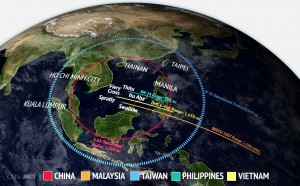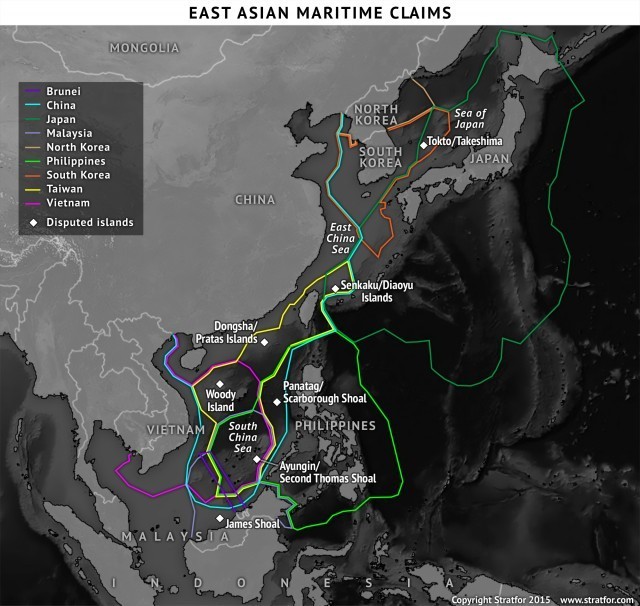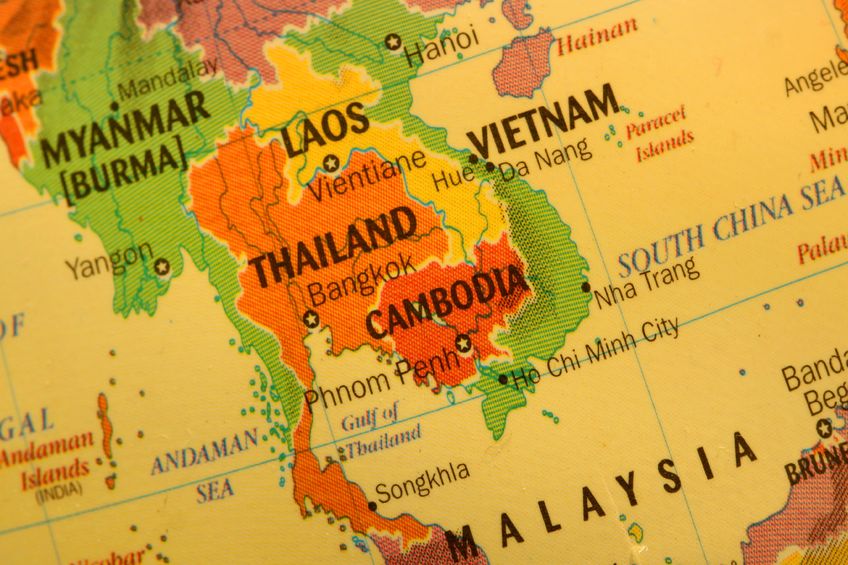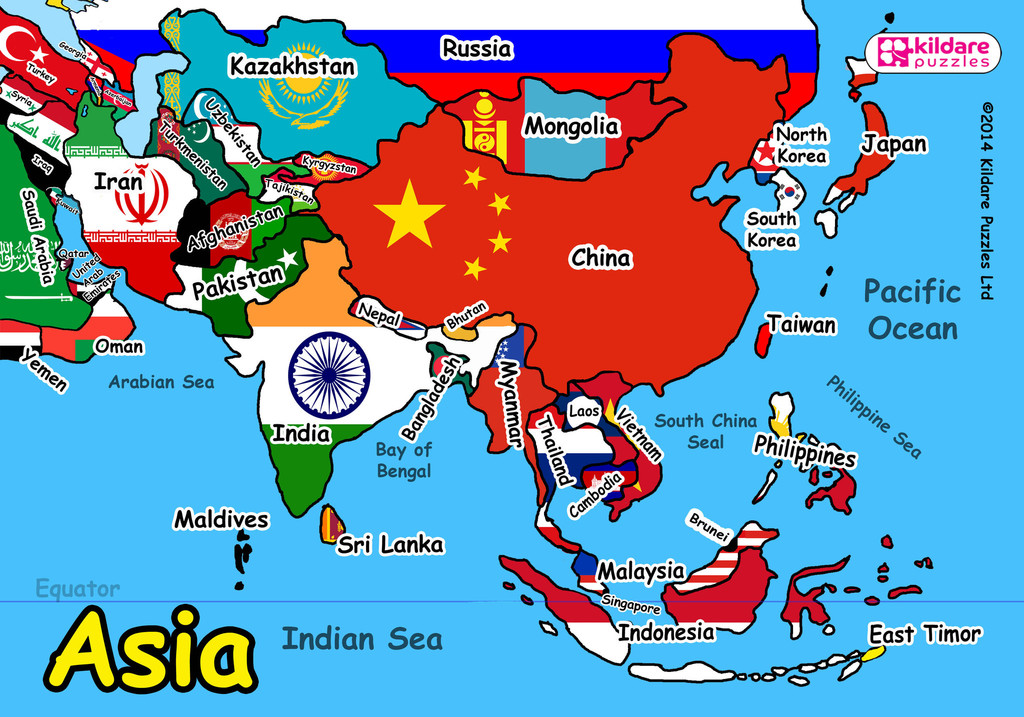Forecast
- A recent agreement to resolve some historical grievances will not seriously assuage deep anti-Japanese sentiment in South Korea.
- South Korea will likely ignore U.S. and Japanese calls to send ships into the South China Sea, which risk antagonizing China.
Analysis 
Several countries have been courting an increasingly active Japan to support them in asserting their maritime rights in the South China Sea against China’s expanding presence. But South Korea may be slow to follow Japan’s example. Though the waters off the southeast Chinese coast are a vital trade route for South Korea, as they are for other surrounding countries, committing military force there would risk hurting the country’s close trade relationship with China. That is a risk South Korea may not be ready to take, especially since it would mean throwing its lot in with its historical colonizer, Japan.
So far, Japan has led efforts to counter Chinese influence in the South China Sea. Its own military engagement in the region has taken the form of joint naval and coast guard exercises and the delivery of patrol ships to regional coast guards — such as that of Vietnam, the Philippines and Malaysia — to assist them in competing with the Chinese coast guard. Eventually Japan may even start periodically sending its own ships or planes to patrol the area as part of its drive to take a more active role in regional security.
Japanese Prime Minster Shinzo Abe recently attempted to draw South Korea to the cause. At a meeting on Nov. 2, Abe invited his South Korean counterpart, President Park Geun Hye, to join Japan in maintaining an “open and peaceful South China Sea” — a thinly-veiled euphemism that could refer to any number of joint efforts in the contested waters, such as joint exercises, joint patrols, arms sales and technical assistance.
South Korea certainly has resources it could commit. It has a robust navy and is one of the world’s largest shipbuilders. The claimant countries around the South China Sea have been clamoring for more naval vessels and patrol craft, along with the technical expertise to operate and maintain them. South Korea is well equipped to meet that need. And as a U.S. ally, it would make sense for South Korea to participate in what the United States considers a strategic priority in the region — maintaining freedom of navigation in the waters off China’s coast.

Historical Grievances
However, in marked contrast to countries such as Vietnam and the Philippines, which are eagerly signing deals for equipment from Japan, South Korea has traditionally been unenthusiastic about cooperating with Japan, even on Northeast Asian security issues. U.S. efforts to push South Korea and Japan to work together have historically yielded only modests results.
This is partly because of lingering distrust following World War II. South Koreans largely view Japan as the aggressive colonial occupier it once was, and many view cooperation with its leaders — who have yet to even acknowledge the harm Japan inflicted on South Korea, much less to offer remuneration — as something of a betrayal.
Among South Korea’s many historical grievances with Japan is the issue of “comfort women,” Imperial Japan’s wartime system of coerced prostitution into which many Korean women were forcibly enlisted. Despite an agreement between Park and Abe to reach an “early settlement” on the issue of comfort women, the flimsy diplomatic pronouncement is not likely to resolve tension over what South Koreans view as Japanese war crimes anytime soon. In addition, the two countries’ already sour relationship is being further strained by their territorial dispute over Dodko Island, situated between Korea and Japan and a focal point of Korean nationalism.
Moreover, even if officials recognize the benefits of cooperating with Japan, there are deep political costs for South Korean politicians seen as being too intimate with their former colonizer. When Abe visited South Korea on Nov. 2, there was no joint press conference, no joint statement and no state luncheon held for the prime minister — a stark contrast to the state dinner that Park held for Chinese Premier Li Keqiang, who was also in South Korea at the time. South Korea’s anti-Japanese sentiment will not help Japan and other regional powers trying to solicit the country’s aid in patrolling the South China Sea.
Strategic Calculations
Apart from the domestic political costs, South Korea’s unwillingness to get involved is tied to its position as a relatively small power situated between China on one side and Japan and the United States on the other.
Though South Korea has strong strategic military ties with the United States, its economy is closely intertwined with China’s. In 2014, over a quarter of Korean exports went to China, and 17 percent of South Korean imports came from China. In addition, South Korea needs China’s help to manage disruptive actions from North Korea. And because China has placed enormous importance on limiting Japan’s role in the South China Sea, Seoul can expect serious retribution from Beijing if it opts to cooperate with Tokyo. The political and economic costs for South Korea may be unbearable — unlike for the Philippines and Vietnam, which consider parts of the South China Sea as their own territory, and for Japan, which can better weather poor relations with China.
Moreover, though South Korea has a military alliance with the United States, the costs of doing nothing to aid U.S. efforts in the South China Sea are relatively low. The United States will keep working to keep the sea lanes open for South Korea and other countries in the region, regardless whether or not South Korea takes an active military role in the South China Sea. In short, South Korea can simply depend on U.S. military power with little to no consequences.
Absent major change, South Korea is unlikely to accelerate military engagement with South China Sea claimants, least of all with Japan. And U.S. and Japanese calls for South Korean involvement are likely to fall on deaf ears. Japan, for its part, has little to offer South Korea in return for its cooperation. The very factors that make South Korea an attractive partner in the South China Sea — economic wealth, military capability, and well-developed armaments and shipbuilding industries — also make the incentives Japan offers to its other partners of little value to South Korea.







